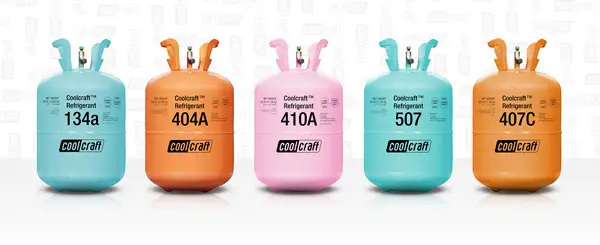Refrigerant safety isn’t just another buzzword—it’s crucial to our daily lives. From air conditioners to refrigerators, refrigerants are everywhere. But, mishandling them can lead to serious consequences. So, how can we ensure we’re keeping things cool safely?

Table of Contents
Brief Overview
Understanding Refrigerant Safety
So, you’ve heard of refrigerants, right? But what about refrigerant safety? It’s all about taking the right steps to prevent accidents when working with these nifty but potentially dangerous substances. After all, who wants to play fast and loose with something that can cause skin irritation, eye damage, or even a full-blown explosion? Yeah, didn’t think so.
The Nature of Refrigerants
What are Refrigerants?
Alright, so what’s a refrigerant anyway? Well, it’s a substance that’s used in cooling systems—like your trusty AC or fridge. It absorbs heat from the environment and cools it down. Pretty cool, huh? But here’s the kicker: they can be dangerous if not handled properly. So, safety first, folks!
The Flammability of Refrigerants
Now, you may be asking, “is refrigerant gas flammable?” The answer, my friend, is a resounding yes! Some refrigerants are quite flammable and can go up in flames if not handled with care. So, always remember: treat these guys with respect!
Classifying Refrigerants by Flammability
Alright, so not all refrigerants are created equal. They’re actually classified based on their flammability. According to the American Society of Heating, Refrigerating, and Air-Conditioning Engineers (ASHRAE), there are three main classes. Be sure to know your stuff before diving into any refrigerant-related project.
Common Flammable Refrigerants
Some refrigerants are more flammable than others. Hydrocarbons like propane and isobutane are known to be particularly flammable. Remember, knowledge is power. The more you know about the stuff you’re working with, the safer you’ll be.
Do you want to read more in-depth articles on refrigerants? Click here: Articles on Refrigerants: The Ultimate Guide to Understanding Them
Refrigerant Hazards
Potential Dangers of Refrigerants
Let’s not beat around the bush here: refrigerants can be hazardous. From health risks to environmental damage to physical dangers, there’s a lot to consider. But don’t worry, we’re here to help you navigate these icy waters safely.
Health Hazards
On the health front, refrigerants can cause skin and eye irritation. But that’s not all. Inhaling them can lead to dizziness, nausea, and in extreme cases, even asphyxiation. So, it’s not just about staying cool—it’s about staying alive!
Environmental Hazards
And let’s not forget about Mother Earth. Certain refrigerants, especially older ones, have been linked to ozone depletion and global warming. According to the Environmental Protection Agency (EPA), it’s essential to handle these substances responsibly to reduce their environmental impact.
Physical Hazards
Physical hazards? Yeah, we’re talking about the risk of fire and explosions here. Some refrigerants can go from being your best friend to your worst enemy in a flash if not handled properly. So, always remember: safety first!
Safety Measures when Handling Refrigerants
Safe Handling and Storage of Refrigerants
So, how can we handle refrigerants safely? It starts with proper storage and handling procedures. Keep them in a cool, well-ventilated area, away from heat sources and open flames. And always, always wear personal protective equipment when handling them.
Using Personal Protective Equipment (PPE)
Speaking of PPE, it’s your best line of defense against refrigerant hazards. Gloves, safety goggles, and protective clothing can go a long way in keeping you safe. Remember, it’s better to be safe than sorry!
Proper Storage Procedures
As for storage, keep refrigerants in their original containers with the labels intact. And keep them upright—no laying down on the job for these guys! Proper storage reduces the risk of leaks and helps prevent accidents.
Emergency Procedures
Even with the best precautions, accidents can happen. But don’t panic! Knowing what to do in an emergency can make all the difference.
Responding to Refrigerant Leaks
If there’s a leak, first, evacuate the area. Then, call in the professionals. Trying to fix it yourself can lead to more harm than good. And remember, always prioritize safety over everything else.
Fire Safety Procedures
And if there’s a fire? Get out, stay out, and call the fire department. Don’t try to play hero—leave the firefighting to the pros. And once you’re safe, call your refrigerant supplier. They’ll know how to handle the situation.
Conclusion
The Importance of Refrigerant Safety
So, there you have it: refrigerant safety in a nutshell. It’s all about understanding the risks, taking the right precautions, and always being prepared for emergencies. Remember, safety isn’t just a buzzword—it’s a lifesaver. So, stay cool and stay safe, folks!